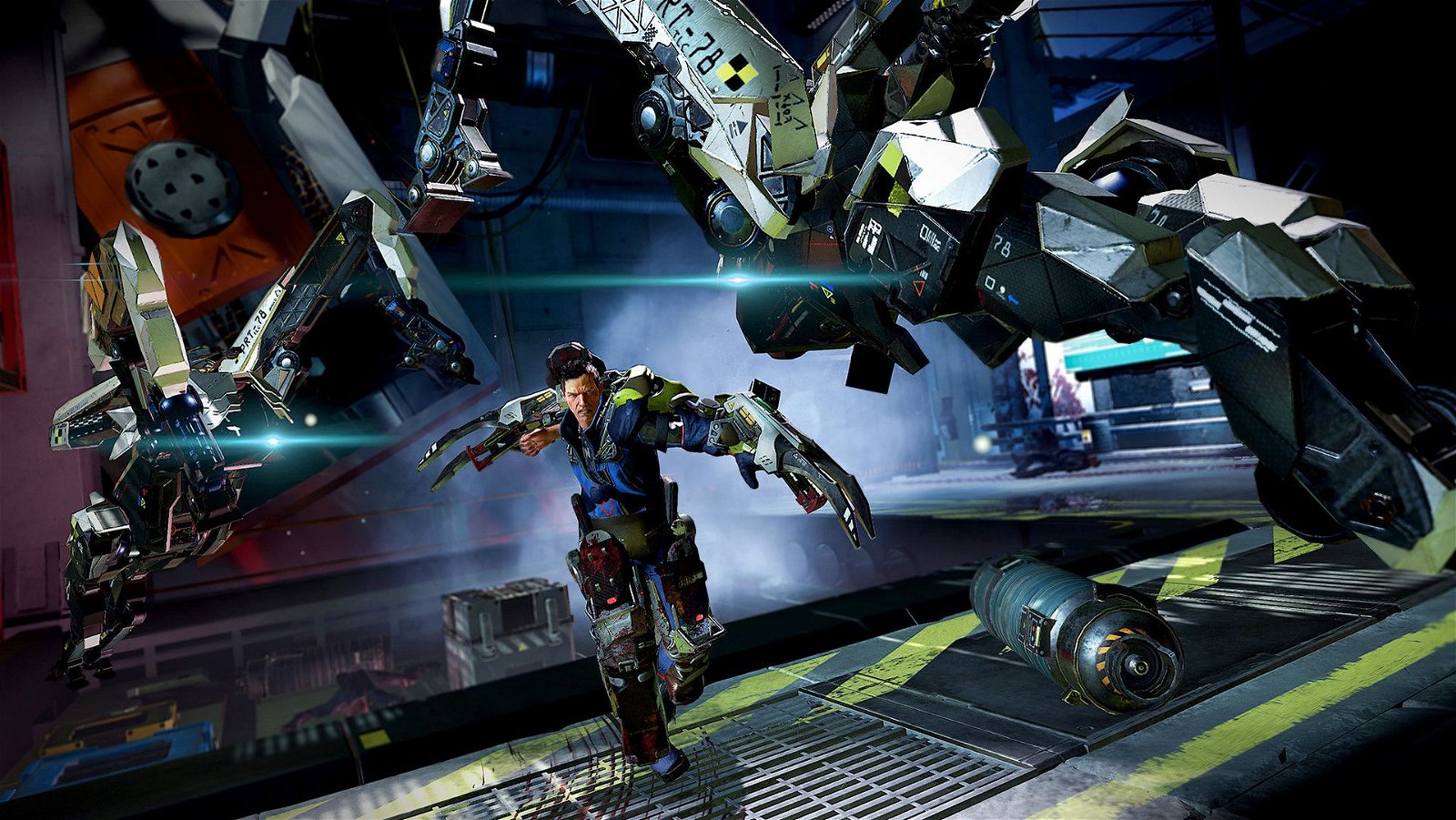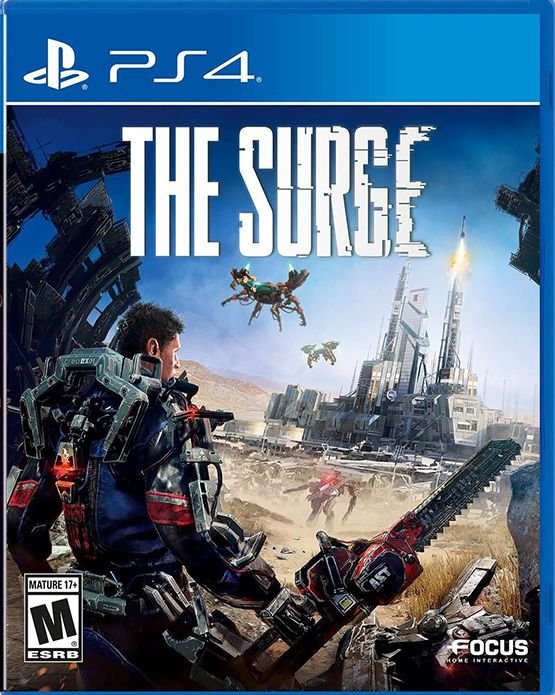Dark Souls has transcended being a video game franchise and become a buzzword for describing a plethora of things. Take a shot for every time you’ve heard “it’s the Dark Souls of X,” “it’s like Y meets Dark Souls,” or “Z game is as hard as Dark Souls,” and I guarantee you’ll wind up in the hospital with alcohol poisoning. In some cases, though, that descriptor is appropriate.
Lords of the Fallen was such a case, as Deck13 basically took From Software’s golden goose and copied its gameplay wholesale. While it was far from a bad game, and one that I will say I enjoyed despite its short length and slow gameplay, it was pretty derivative across the board. It’s clear that the developer has learned their lesson with their new Souls-like, The Surge. While it’s still a blatant aping of a better franchise, it brings enough new features to the table to merit at least a cursory glance.
Its biggest deviation from its inspiration is in the setting. The Surge takes place in the wake of a mechanical apocalypse, where a sinister corporation’s seeming altruism has backfired and destroyed most of the world. Most of humanity has been merged with machines, resulting in a hybrid race of mechanical terrors. These zombie-like monsters are Cronenbergian in their concept and Tsukamoto-esque in their appearance—a nightmarish exercise in biomechanical body horror. They’re joined by corrupted machines, ranging from berserk droids to hulking factory machinery turned sentient. One man, decked out in an exosuit, has to face these nightmares to make sense of what exactly happened to the world and if there’s any hope to be had in this new wasteland.
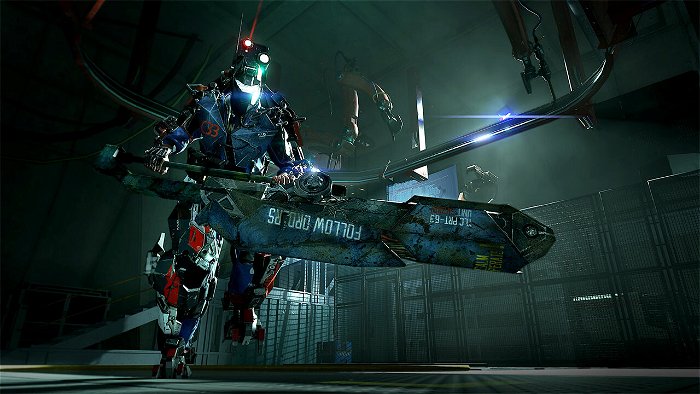
The Surge wears its influences on its sleeve. From Terminator to Edge of Tomorrow to Transformers to Metal Gear, it’s a game clearly inspired by a lot of media concerned with mechanical apocalypses. However, it’s not entirely unoriginal—the idea of turning Terminator’s vision of a ruined earth dominated by robots into something horrific instead of a shooter has legs. Instead of empowering players to mow down armies of robots with high-powered weaponry, its narrative positions itself as something bleak and oppressive. This isn’t a triumphant tale of man beating machine—it’s a world where the machines have irrevocably won, where corporate hubris has destroyed society, as we know it. That’s pretty novel, really, and a framework that makes it an aping of other narratives feel a little less egregious.
Where the narrative fails, though, is in the finer details. For starters, its protagonist is a generic white guy whose only backstory was “I was in a wheelchair and now I’m not.” He’s not interesting, he barely has a personality, and frankly, it wouldn’t have hurt The Surge at all to make him a customizable character. Nothing of value would’ve been lost. In Lords of the Fallen, Harkyn was an interesting enough lead to merit not being player-created, but this guy is bland as they come. The side characters surrounding him, some of whom have only a few lines, are more interesting than he is. Also less interesting is the overarching narrative, which pans out to be something James Cameron came up with over twenty years ago and not much else. The evil corporation here is, for all intents and purposes, SkyNet 2.0, and while I’m an unabashed Terminator fanboy, I must say that I was hoping there was something a little more original here.
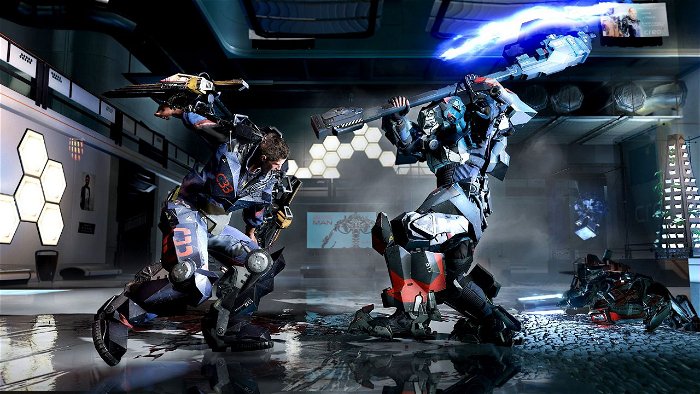
My hopes for originality were somewhat satisfied by the gameplay, though. Sure, on a basic mechanical level, it’s another unabashed derivation of the Souls formula. It plays basically identically to those games, albeit a lot sloppier, more prone to bugging out, and with hitboxes that end up feeling very unclear. But in the smaller details, Deck13’s done a great job of iterating on a formula that’s started to get stagnate. It all starts with a unique gear system that puts an emphasis on enemy dismemberment and crafting. To deck out their exosuit, players have to focus on enemies’ limbs and strategically cut them off using special moves. Once enough limbs have been collected, players can use the parts to either craft new limbs or strengthen existing ones. The more enemies the player encounters, the more loadouts they’ll find, and the more variety they’ll find in mixing and matching different parts. There’s a definite novelty to experimenting with different load outs, and it’s a novelty that never wore off for me.
The other mechanics of The Surge also differ from the Souls franchise enough to not feel like a straight-up rip-off. Bosses have to be taken down in a correct order of dismemberment, and taking off different limbs first produces different results. Players’ souls, I mean, “scrap,” will deteriorate after a few minutes, meaning that if they don’t pick them up soon after dying they’ll lose them forever. There’s a surprisingly nuanced and even more surprisingly not tedious crafting system, an ability to “bank” scrap in safe rooms for future upgrades, and a bunch of other little tweaks that make it clear that Deck13 is going for their own thing here.
But the problem is, though, that their main inspiration is still one that does this game’s basic mechanics way better than The Surge can muster. There’s a great degree of imprecision to the combat here, ranging from players’ strikes going in weird directions to hits occasionally just phasing through enemies. Dodging is arguably the worst offender here, with the window of the player getting hit often feeling poorly defined and entirely up to chance. There were times where an enemy hit clearly didn’t connect with the protagonist’s body, yet still knocked me back and took away a chunk of health. Precision-based action games only work with there’s precision involved, and while The Surge is a far cry from the awful combat found in something like Necropolis, there’s still too much up in the air to hold a candle to the mechanical perfection found in something like Bloodborne or Dark Souls III.
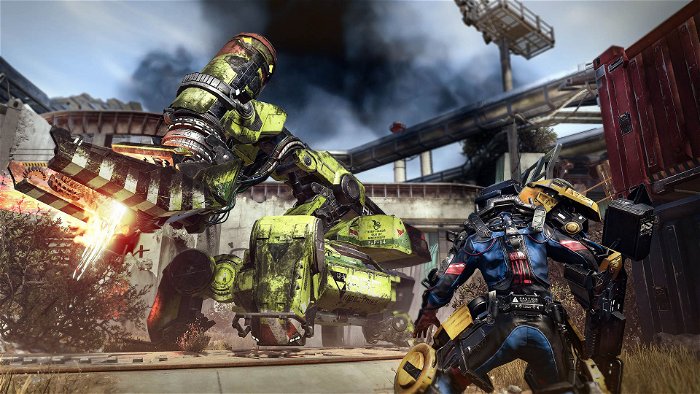
All this being said, The Surge is worthy of admiration from a stylistic perspective. After Dark Souls took off, all its imitators seemed to be transfixed by making more high fantasy guff instead of doing something original. While Deck13’s game certainly does take inspiration from other science fiction apocalypses, there’s something to be said for one of these sorts of games letting players take down giant robots instead of yet another dragon. Dodging laser beams and cutting off robotic appendages is a cool feeling, and made the game’s dives into sloppiness a little easier to swallow. Is it just a coat of paint? Yeah, basically. But it’s a nice coat.
The Surge isn’t going to win any awards for its gameplay or narrative, but it manages to earn the distinction of being the best Souls-like game I’ve played yet. That isn’t to say it’s a great game, or that it even comes close to touching something actually made by From Software. But it does enough aspects differently, puts on enough layers of paint, and manages to establish an interesting enough setting to be a compelling little game. Deck13 is clearly a team with big ambitions, and even when The Surge fails to hit that high bar, one can’t help but admire the gusto at which the developer just goes for it. With more polish, I can really see their next game being a true must-have.
For now, though, The Surge will do just fine. In spite of its blemishes, it’s worth considering, and definitely worth checking out after a price drop.
